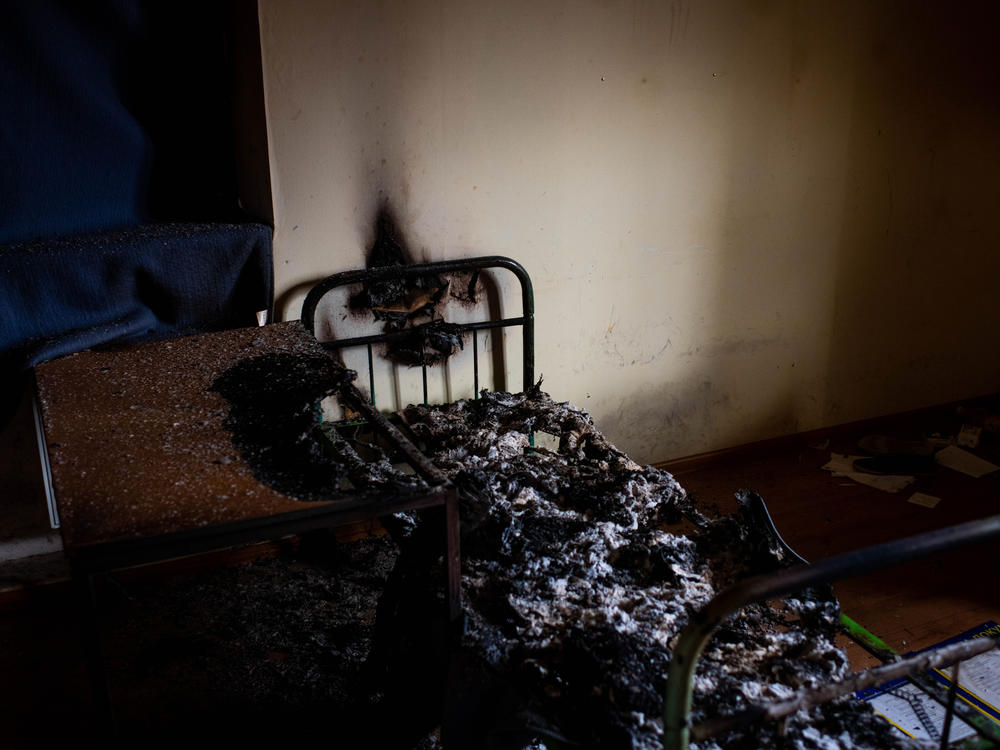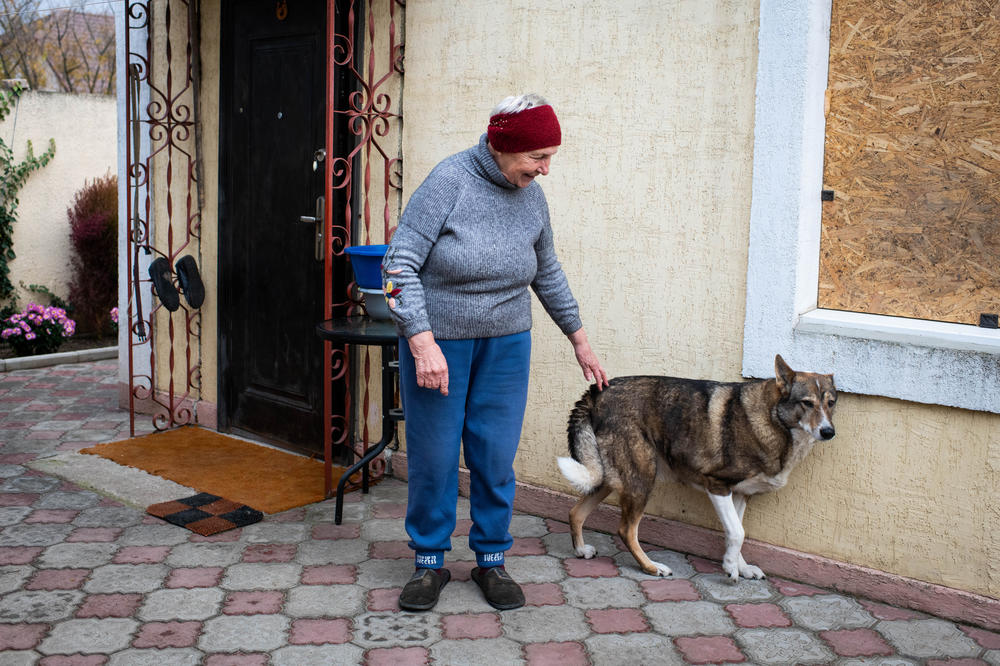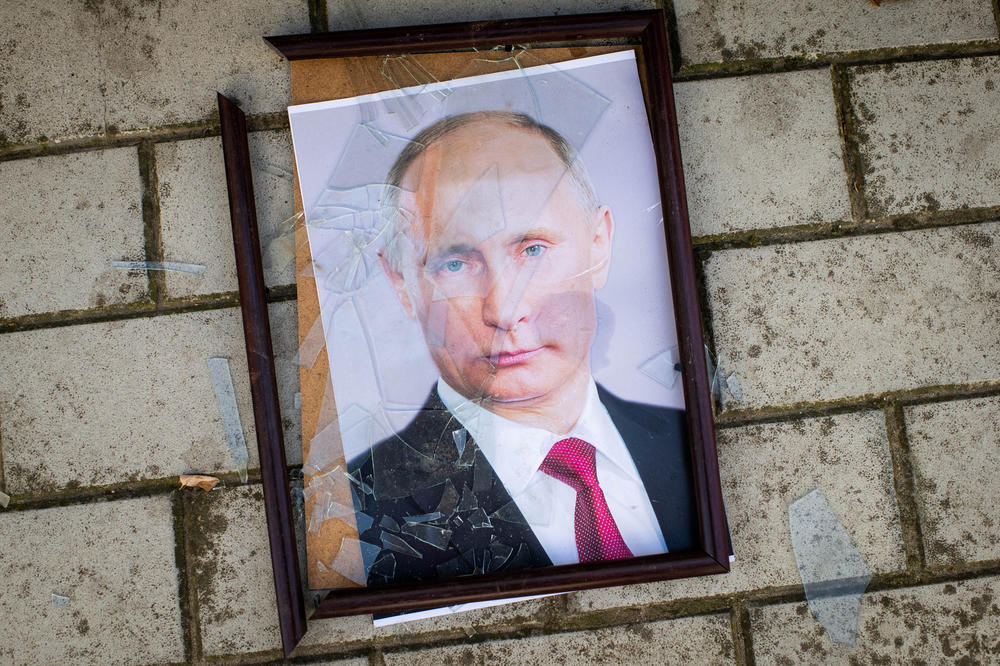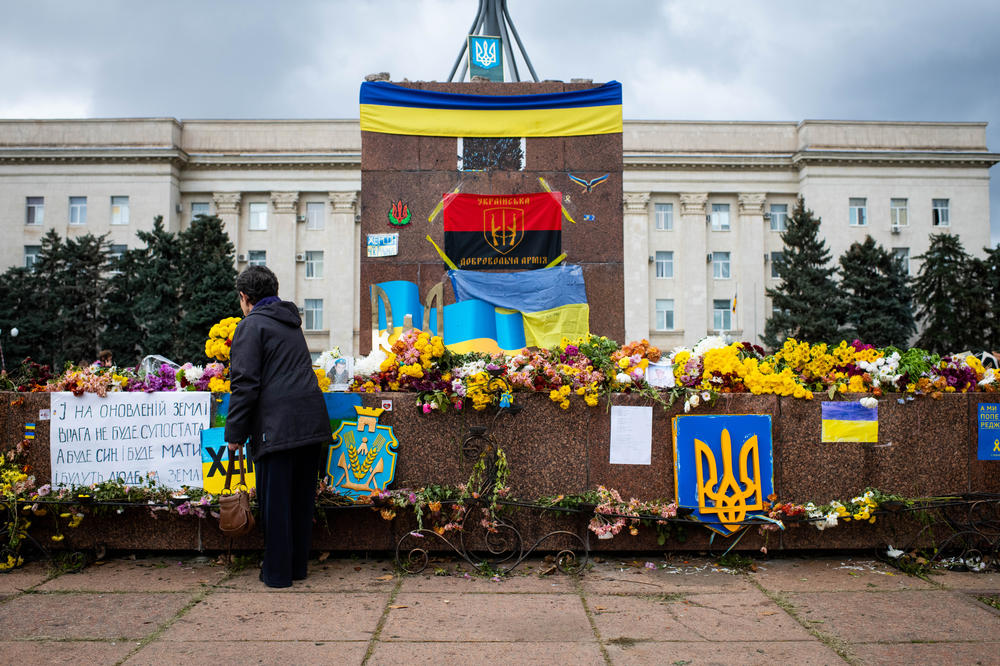Section Branding
Header Content
Screams from Russia's alleged torture basements still haunt Ukraine's Kherson
Primary Content
KHERSON, Ukraine — Just talking in Ukrainian could get them arrested and even tortured, residents say. Displaying a Ukrainian flag was out of the question. They say they suffered daily indignities and lived in fear during the Russian occupation of this southern Ukrainian city.
"People didn't go into the streets," except to buy basics like food, says Maryna Zinevych, a 54-year-old who's lived in Kherson all her life. "We were under constant pressure, constant watch."
These were just some of the chilling accounts from residents in Kherson after 8 1/2 months under Russian occupation.
Today, Ukrainians are celebrating and singing patriotic songs in the main square, one week after Russian forces retreated. But from behind the carnival atmosphere, a picture is emerging of what citizens endured under Russian rule. They describe instances of detention and abuse amid a climate of terror and suspicion.
"We heard these crazy screams at night"
As Zinevych speaks to NPR in the city's Liberty Square, she wears a shimmering Ukrainian flag wrapped around her shoulders like a shawl. Residents all around her celebrate the Russian withdrawal. People are taking selfies with a plump watermelon — a symbol of Kherson.
The joyous scene would have been impossible just eight days ago, before Ukrainian forces took back control.
Zinevych says the Kremlin-installed authorities were constantly on the lookout for people they deemed "partisan" — anyone who might pass information to Ukrainian authorities that could undermine the occupation.
And in public, everyone had to speak Russian.
"For [speaking] the Ukrainian language or [showing] Ukrainian symbols, you could be taken to the basement and tortured," she says. By "basement" she means detention centers set up by the Russian forces.
One such facility was at a police station on the northern side of Kherson near the Antonivskiy Bridge.
Mariya Kryvoruchko, who lives a half a block from the police station, remembers some terrifying moments.
"We heard these crazy screams at night," Kryvoruchko says. "There were shouts from the jail of people being tortured at night. In the summer when you opened the window, we heard it very well."
As she speaks with NPR, suddenly an explosion rings out in the distance. Kryvoruchko doesn't flinch. "That's outgoing," she says, "don't worry!"
The 70-year-old says she doesn't know who was being held or tortured at the police station.
"When I passed the police station I was even afraid to look. [The Russians] were there with guns," she says.
He was suspected of being part of the underground
One man who says he was detained there is Maksym Negrov.
He has come back to the compound to find the cell where he was held from March until mid-April.
"The Russians arrested everyone who had a pro-Ukrainian position," Negrov says, standing inside the now-abandoned police compound. Three vandalized vans with their Ukrainian police emblems blotted out with red spray paint sit in the yard.
The Russian captors beat and tortured all of the detainees, he says, including him.
Negrov, 45, had served in the Ukrainian military when he was younger. "I was detained for suspicion of involvement in the resistance movement," he says. "But at the start of the war, I was just a businessman."
Eventually, he says, the Russians let him go.
Officials are investigating torture allegations
Ukrainian Parliament Commissioner for Human Rights Dmytro Lubinets says his office is investigating allegations of human rights violations and crimes against humanity by the occupying Russian military in Kherson.
"These include torture in basements, forced disappearances, hostage-taking of civilians, and extrajudicial executions," he said on the Telegram messaging app.
Investigators from the United Nations and human rights groups also say they are gathering evidence of torture and other abuses.
There's an underground resistance
Another man says he was part of what he calls the "peaceful" underground resistance in Kherson. The 25-year-old only gives his code name, Ivan, because he says he's still involved in covert operations.
"They were constantly trying to arrest us," he says.
Ivan is the coordinator of a group called the Yellow Ribbon Movement.
"We were putting up graffiti and yellow ribbons to remind people that Kherson is still Ukraine," he says.
His group also distributed leaflets and posted flyers trying to help people resist the Russian occupation. One key message: Do not take a Russian passport.
The Moscow-backed administration tried to give residents Russian passports, saying it would make them eligible for food aid and other assistance.
"They would try to force you to take their passport," he says. And for young Ukrainian men, he adds, "their passport, it's like a ticket to their army."
Hundreds of men from Kherson were conscripted into the Russian military, according to Ivan. There have been reports of Russia drafting Ukrainian men in occupied territories, but NPR has not confirmed how many.
As the Kremlin struggles to get recruits to the front line, Ivan says, "They want to have Ukrainians fighting against Ukrainians."
He says now that Kherson is freed its celebrations have been inspiring.
He is working with activists in Crimea and other Russian-occupied areas on guerrilla information campaigns and spreading the message that, no matter what the Kremlin says, those territories are still part of Ukraine.
Polina Lytvynova contributed to this report.
Copyright 2022 NPR. To see more, visit https://www.npr.org.





